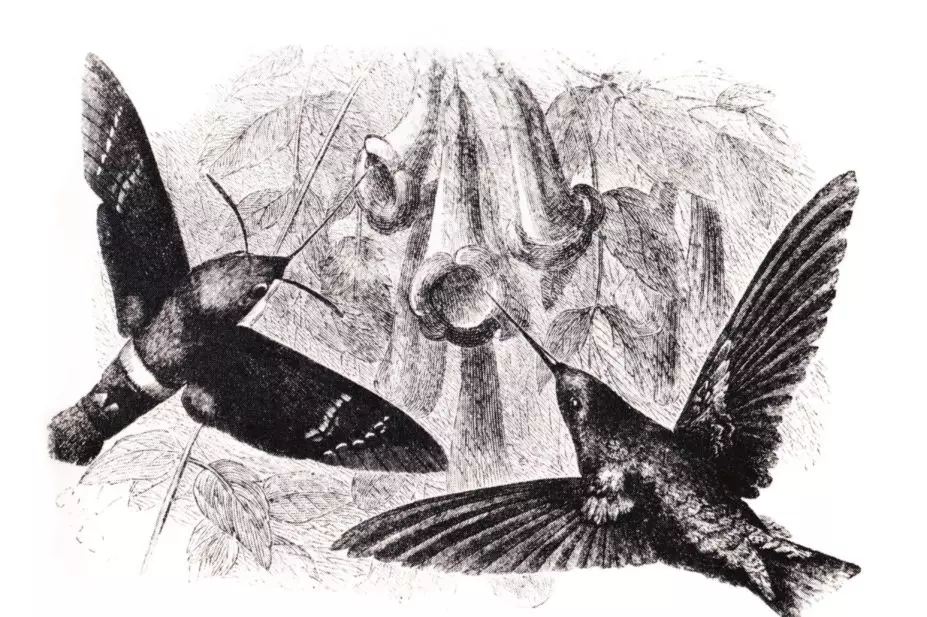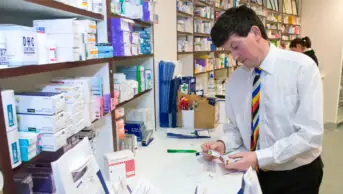
Cordelia Molloy / Science Photo Library
Readers’ expectations and aspirations have been at the centre of The Pharmaceutical Journal’s redevelopment programme, which began more than a year ago. The Royal Pharmaceutical Society (RPS) recognised the need to invest in its journal division and help ensure its publications meet the needs of members and the wider public, and so 2014 saw The Pharmaceutical Journal take an evolutionary leap.
As part of the relaunch process we surveyed nearly 1,000 members of the RPS. This exercise revealed a diversity of views on what they wanted to see and, although it did not capture the opinions of our wider readership, several themes resonated strongly.
The Pharmaceutical Journal needed to have more clout. Readers wanted us to do more to raise the profile of pharmaceutical practice globally among healthcare professionals, scientists, policymakers and the public.
You wanted more in-depth coverage of the science that forms the basis of pharmacy practice. There has been a marked shift in The Pharmaceutical Journal’s focus since its July 2014 relaunch to meet this expectation. Indeed, in doing more to highlight developments in the pharmaceutical sciences to RPS members and our broader readership, we believe The Pharmaceutical Journal is now better reflecting the formative purpose of “illustrating the advantage of scientific discussion” set out in the first issue of 1841.
You wanted The Pharmaceutical Journal to be a premium source of information to support your career through all stages of development.
Yet some pharmacists also told us that not all our content is relevant to their particular sector of work. The Pharmaceutical Journal has long had a tricky task of seeking to appeal to pharmacists in all areas of practice — community, hospital, primary care, academia, industry, to list the main sectors — and latterly pharmaceutical scientists. In the past this meant delving too far into the minutiae of different regions or sectors, but this approach was at the expense of providing an enriching experience for the whole readership. Rather than provide pharmacists with a weekly dose of introspection, we now aim to inform their practice by considering bigger issues, providing context and a window into other areas of medicine and science.
However, we understand that career aspirations are personal, and so our career section has been enhanced to provide more stories of pharmacists and pharmaceutical scientists in a diversity of roles, with insights into how they got there. This links with a major revamp of our recruitment website as Pharmaceutical Journal Jobs in 2015, which should make it easier for pharmaceutical professionals to find out about career opportunities that might be relevant to them.
What is happening in our print pages and online mirrors the journey that pharmacy is taking as a profession. The future of pharmacy is most certainly clinical, and so issues affecting patients and caregivers ought to feature along with the challenges facing pre-clinical researchers, translational scientists, manufacturers and regulators.
But pharmacy in the UK does not exist in isolation. Our learning article on the Ebola virus disease was one of the most popular to date. So our expanding readership has an appetite for reading about global health issues.
The Pharmaceutical Journal’s news coverage of the Ebola crisis followed the explosion in the number of cases, the downfall of healthcare systems in the affected countries, the international response and funding pledges, the use of the experimental medicine ZMapp, and the efforts to develop a vaccine in record time.
The epidemic has highlighted the poor healthcare infrastructure in parts of the developing world — and we reached out to commentators who could offer insight from the region. In an editorial in the autumn, The Pharmaceutical Journal explored why the international pharmacy community should support the growth of in-country capacity and know-how, particularly in the areas of pharmaceutical procurement, logistics and product management. We explained how health workers, including pharmacists, could register their willingness to volunteer in the epidemic through the UK International Emergency Medical Register.
The concerns of the global pharmacy community are at the heart of our approach; but this would not be possible without an ongoing dialogue with readers.
An essential element supporting this exchange has been the move from a traditional print first publishing model to a truly digital-first product, underpinned by a modern web platform. We learn much about what is popular by analysing how readers discover, read and share our content online. Comments on individual articles and conversations on social networks give you a direct route to tell us what you think of The Pharmaceutical Journal and, crucially, what issues are stimulating debate. We are also grateful for the continued contributions from our readership on the correspondence page — it has become a thought provoking forum to hash out an issue.
This journey has no fixed destination. Our development is a continual process of listening, learning and adapting — much like pharmacy itself.


